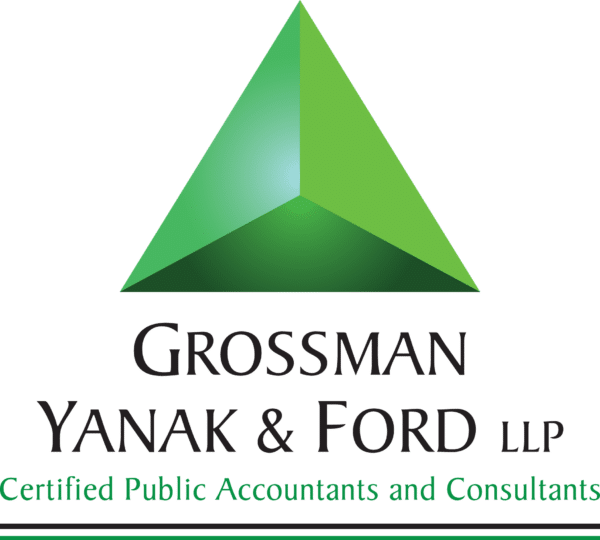After two years of online-only presentations, GYF hosted our annual event in-person on November 3, 2022, at the Southpointe Hilton Garden Inn. We were extremely excited to be able to reconnect with everyone again for the first time since the pandemic! GYF presents this program each year to bring together clients, friends of the firm, and other professionals who are interested in gaining knowledge. Not only is the day filled with interesting presentations and great networking opportunities, but it also includes a delicious lunch and fresh-baked cookies, which are always a hot topic of discussion and don’t last long!
This article gives a recap of the topics discussed throughout the program for a crowd of approximately 300 attendees. Click here for a summary of the day’s agenda, as well as downloadable links to the materials and recordings of the presentations. Mark your calendars now to save the date (11/9/23) so you can join us next year!
Donald Johnston (Partner) and Ryan Fronius (Manager) started the day off with a Tax Update. Don began with an overview of the current balance of power in Congress and the importance of this year’s election, including the implications of potential tax law changes if the power in Congress were to sway one way or the other. Ryan went on to discuss some recent tax law changes that have already been put into effect, including the Inflation Reduction act of 2022 which was signed by President Biden on August 16,2022. The legislation includes large investments to make health care and prescription drugs more affordable, fight climate change and tax wealthy corporations. However, according to the Congressional Budget Office (CBO), a federal agency that provides budget and economic information to Congress, the bill will barely make a dent on inflation in the near term – and it could even nudge it upward. The presenters also discussed individual tax planning strategies, highlighting that timing is extremely important. Finally, they reviewed some examples of deferral and acceleration strategies in which timing is a key factor that could significantly impact taxes due.
Michael Weber (Partner) concluded the tax education for the day with his “Tax Potpourri” presentation that included topics such as K2 & K3 reporting, the Employee Retention Credit, Sales and Use Tax, and Federal Taxation of Virtual Currencies. Mike noted that there are new filing requirements, which were put into effect in 2021, that require some entities to prepare two new schedules (Schedule K-2 and Schedule K-3) that will need to be filed with certain business returns. Mike noted that the intention of this change is to report items that partners/shareholders need to calculate their U.S. Income Tax Liabilities when considering international deductions and credits. Mike also discussed the Employee Retention Credit (ERC) in detail, reviewing that the basic qualifications include government shutdown and a decline in gross receipts. Mike informed everyone of a warning from the IRS about third parties who are advising employers to claim the ERC. The IRS cautioned that some of these questionable advisors are taking improper and aggressive positions as well as charging large upfront fees and/or fees contingent on the amount of the refund to be received. Mike explained that some of these third parties were failing to inform taxpayers about income exclusion and also noted that a large number of audits were being done on previously received ERC credits to ensure that the proper amounts were awarded, whether the error was made on purpose or in good faith. Employers should utilize the services of a trusted advisor for assistance.
In addition to these tax topics, GYF professionals from the A&A Group gave two presentations related to assurance services. Jeff Ford (Partner) and Amber Pinskey (Manager) provided an A&A Update on newly-applicable accounting standards and potential future changes. Jeff discussed ASU 2019-12, which is part of FASB’s simplification initiative. This ASU removes four exceptions to general principles in Topic 740 and includes a required recognition of franchise tax that is partially based on income as an income-based tax. The team went on review the overall impact of ASU 2016-02 and other guidance relating to leases. These changes affect all organizations with leases, including subleases and related party leases, and are intended to help organizations accurately reflect their financial positions and eliminate off-balance-sheet financing. Lastly, Amber noted some changes to audit communications including changes to the audit report as well as engagement letters. The changes relating to the financial statements affect the ordering of the statements, putting the opinion first. Additionally, Management and Auditor responsibilities are defined in detail and there is now an optional inclusion of Key Audit Matters.
The audit topics were brought to a close with Megan Troxell (Partner) and Mark Wolstoncroft (Partner), who presented “A&A FAQs” discussing challenges arising from the current economic and business climate as well as common issues relating to employee benefit plans, not-for-profits, and record retention. Going concern has become been an increasingly significant issue for organizations over the past couple years, primarily relating to the effects of the pandemic, and was a focus of a portion of the presentation. Mark and Megan reviewed the steps related to identifying and evaluating the conditions and events that raise substantial doubt about an organization’s going concern as well as the process of creating a plan to mitigate the conditions and events identified. The team also discussed common errors that can occur in employee benefit plans such as, delinquent employee elective deferrals, deferral errors, and errors with respect to employer contributions as well as the programs available to assist with identifying and correcting the aforementioned issues.
Professionals from the Business Valuation and ERP Solutions Groups also provided their perspectives on hot topics in their areas of expertise. Melissa Bizyak (Partner) and Brad Mathews (Senior Manager) of GYF’s Business Valuation Group discussed Analyzing Financial Statements from a Valuation Perspective. Melissa noted that the primary objective of financial statements is to assist in the decision-making process for many purposes. Those purposes include things such as routine review of the financial statements for day-to-day activity, support for legal decisions, and to assist in valuing a company for investors and potential buyers. Brad discussed various ratios and analysis of company-specific risk and how they impact value. The team wrapped up by reiterating the importance of transforming absolute numbers in a financial statements into relationships that will accurately asses the company’s financial performance and condition.
Jim O’Mara (Senior Manager) and Jordan Curry (Manager) of the ERP Solutions Group presented Building an ERP Business Case to discuss why an organization should consider transitioning to an ERP software solution that integrates operations and financials. Jordan and Jim teamed up to walk through the process of building an ERP business case, discussing why you would want to build one as well as touching on implementation issues. Jim reviewed the goals of implementing an ERP and Jordan emphasized the importance of establishing a project team and utilizing external consultants. They noted that organizations shouldn’t cut corners in the planning process, because if they do, the implementation could turn out ineffective. In conclusion, the team reminded the audience to strongly consider all of the risks involved when implementing an ERP plan, and to do your research using case studies and other resources or to reach out to our team to assist with this process.
GYF also had the pleasure of hosting two guest speakers who shared their knowledge
- David Holiday, the Director of the Center for Ethical Leadership at Washington & Jefferson College, gave a presentation on Aristotle’s Theory of Friendship and how it applies to developing ethical professional relationships.
- Leo Grohowski, the Chief Investment Officer of BNY Wealth Management, discussed the current Economic and Financial Market Outlook.
The day was filled with eight hours of interesting CPE topics, a long-awaited chance to catch-up with and make new friends, and of course you can’t forget the cookies! We thank everyone who attended this year, as well as everyone who helped make the event possible. If you have any questions about the topics covered, or other issues we did not have time to address, please reach out to your GYF Executive or contact the office at 412-338-9300. We look forward to seeing everyone again in 2023!








